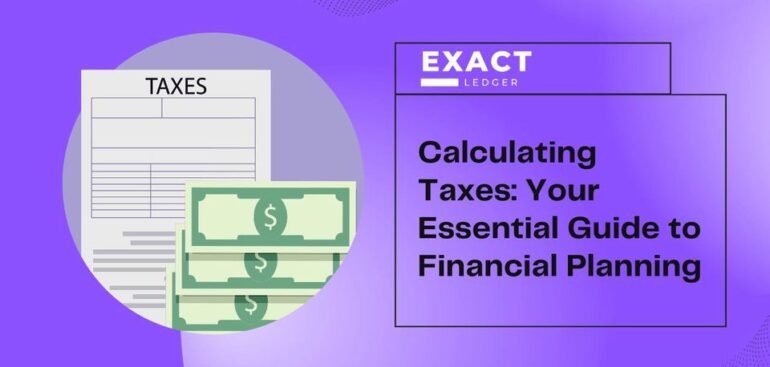Running a small business comes with many responsibilities, one of which is ensuring you save enough money for taxes. The term how much money to set aside for taxes is crucial for understanding the financial planning necessary to avoid unexpected tax burdens. This comprehensive guide will help you determine how much you should set aside for taxes, ensuring you remain compliant and stress-free during tax season.
Understanding Your Tax Obligations
As a small business owner, understanding your tax obligations is essential. How much should I save for taxes small business starts with knowing the types of taxes you need to pay, including federal income tax, self-employment tax, state taxes, and possibly local taxes.
Estimating Your Income
To determine how much you should save for taxes, begin by estimating your annual income. Accurate income estimation allows you to apply the how much should I save for taxes small business effectively, ensuring you set aside the right amount for tax payments.
Calculating Self-Employment Tax
Self-employment tax is a significant portion of your tax liability. For small business owners, how much money to set aside for taxes includes understanding that self-employment tax covers Social Security and Medicare taxes. This is typically around 15.3% of your net income.
Federal Income Tax Brackets
Knowing your federal income tax bracket is essential. Use how much should I save for taxes small business to determine the percentage of your income that falls into each tax bracket. This will help you calculate the total federal tax you owe.
State and Local Taxes
In addition to federal taxes, you need to consider state and local taxes. Depending on your location, these can vary significantly. Incorporate the how much money to set aside for taxes to ensure you account for all relevant tax liabilities.
Quarterly Tax Payments
Small business owners are generally required to make quarterly tax payments. Using the how much money to set aside for taxes calculate your estimated tax payments for each quarter to avoid penalties and interest charges.
Deductions and Credits
Maximizing deductions and credits can reduce your overall tax liability. Keep track of all business expenses and utilize the keyword
how much money to set aside for taxes to lower the amount you need to save for taxes.
Creating a Tax Savings Plan
Developing a systematic approach to saving for taxes is crucial. Use the how much money to set aside for taxes to create a tax savings plan. Set aside a percentage of your income regularly to ensure you have enough funds when tax payments are due.
Consulting a Tax Professional
Consulting a tax professional can provide personalized advice tailored to your business. They can help you accurately determine how much should I save for taxes for small business, ensuring you meet all tax obligations without overpaying.
Introducing ExactLedgers as Your Tax Partner
To further simplify your tax planning and ensure you’re always on top of your tax obligations, consider partnering with ExactLedgers. ExactLedgers is dedicated to helping small business owners like you navigate the complexities of tax planning and compliance. With their expert guidance, you can accurately determine how much to set aside for taxes, maximize your deductions, and avoid costly penalties.
Their team of experienced tax professionals offers personalized support and cutting-edge tools to streamline your financial management. By working with ExactLedgers, you can focus on growing your business while they handle the intricacies of tax planning and compliance.
ExactLedgers | Your Companion for Tax Services
ExactLedgers is not just your tax partner but your comprehensive companion for all tax services. They offer a wide range of services, including tax preparation, tax planning, and ongoing tax support tailored to meet the unique needs of your small business. With ExactLedgers by your side, you can ensure that every aspect of your tax obligations is managed efficiently and effectively.
Conclusion
Saving for taxes is a critical aspect of running a successful small business. By understanding your tax obligations, estimating your income, calculating self-employment tax, knowing your tax brackets, considering state and local taxes, making quarterly payments, maximizing deductions, creating a tax savings plan, and consulting a tax professional, you can effectively manage your tax liabilities. This comprehensive approach ensures you know how much should I save for taxes for small business, allowing you to avoid tax season stress and focus on growing your business.
FAQ’s
How much should I save for taxes as a small business owner?
- It’s generally recommended to save 25-30% of your net income for taxes. This includes federal income tax, self-employment tax, and state and local taxes.
2. What percentage of my income should I set aside for federal taxes?
- For federal taxes, setting aside 15-20% of your income is a good starting point. The exact percentage depends on your tax bracket and specific deductions.
3. How do I calculate self-employment tax for my small business?
- Self-employment tax is typically 15.3% of your net earnings. This covers both Social Security and Medicare taxes.
4. Do I need to pay quarterly estimated taxes?
- Yes, small business owners usually need to make quarterly estimated tax payments to avoid penalties and interest. These payments cover federal, state, and self-employment taxes.
5. How can I estimate my state and local tax liabilities?
- State and local tax liabilities vary by location. Check with your state’s tax authority for specific rates and regulations. It’s wise to set aside 5-10% of your income for state and local taxes.

